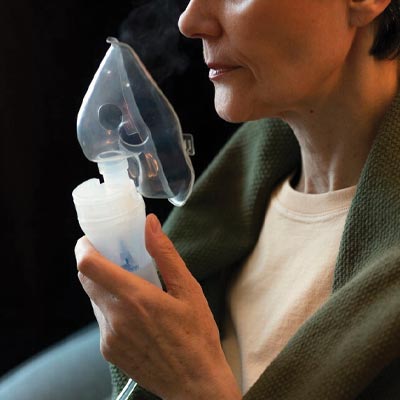Asthma and Chronic Obstructive Pulmonary Disease (COPD) are common respiratory conditions that affect millions of people worldwide. As a general physician, it's crucial to have a clear understanding of these conditions, including their symptoms, triggers, diagnosis, treatment, and management strategies. In this comprehensive guide, we'll delve into the basics of asthma and COPD, providing valuable insights for patients and healthcare professionals alike.
What is Asthma?
Asthma is a chronic inflammatory condition of the airways characterized by recurrent episodes of wheezing, breathlessness, chest tightness, and coughing. These symptoms are often triggered by exposure to allergens, irritants, exercise, or respiratory infections. Asthma affects people of all ages, but it often starts in childhood and can persist into adulthood.
Symptoms of Asthma
- Wheezing (a whistling sound when breathing)
- Shortness of breath
- Chest tightness
- Coughing, especially at night or early in the morning
- Difficulty breathing during physical activity
Triggers of Asthma
- Allergens such as pollen, dust mites, mold, pet dander
- Irritants such as smoke, air pollution, strong odors
- Respiratory infections, such as colds and flu
- Exercise or physical activity
- Cold air or changes in weather

Diagnosis of Asthma
Asthma is diagnosed based on a combination of medical history, physical examination, and lung function tests. These tests may include spirometry, which measures how much air you can exhale and how quickly you can do it, and peak flow measurements, which assess how well your lungs are working.
Treatment and Management of Asthma
The goal of asthma treatment is to control symptoms, prevent exacerbations, and improve quality of life. Treatment options may include
- Medications: Inhalers (bronchodilators and corticosteroids) to relieve symptoms and prevent flare-ups.
- Asthma Action Plan: A personalized plan developed with your healthcare provider to help manage your asthma symptoms and respond to worsening symptoms or emergencies.
- Avoiding Triggers: Identifying and avoiding triggers that can worsen asthma symptoms.
- Regular Follow-Up: Regular check-ups with your healthcare provider to monitor asthma control and adjust treatment as needed.
What is COPD?
Chronic Obstructive Pulmonary Disease (COPD) is a progressive lung disease characterized by airflow limitation that is not fully reversible. The main cause of COPD is cigarette smoking, but long-term exposure to other lung irritants such as air pollution, chemical fumes, or dust may also contribute to its development.
Symptoms of COPD:
- Chronic cough
- Excessive mucus production
- Shortness of breath, especially during physical activity
- Wheezing
- Chest tightness
Triggers of COPD
- Cigarette smoke
- Air pollution
- Occupational exposure to dust, chemicals, or fumes
- Respiratory infections
Diagnosis of COPD
COPD is diagnosed based on medical history, physical examination, and lung function tests. These tests may include spirometry and imaging studies such as chest X-rays or CT scans.
Treatment and Management of COPD
The goal of COPD treatment is to relieve symptoms, improve quality of life, and prevent exacerbations. Treatment options may include:
- Medications: Bronchodilators and inhaled corticosteroids to improve airflow and reduce inflammation in the airways.
- Pulmonary Rehabilitation: A program of exercise, education, and support to help improve breathing and quality of life.
- Oxygen Therapy: Supplemental oxygen therapy for patients with low blood oxygen levels.
- Smoking Cessation: Quitting smoking is the most important step in managing COPD and slowing disease progression.
- Avoiding Lung Irritants: Minimizing exposure to lung irritants such as air pollution, dust, and chemicals.
Asthma and COPD are chronic respiratory conditions that can significantly impact a person's quality of life if not properly managed. By understanding the symptoms, triggers, diagnosis, treatment, and management strategies for these conditions, patients and healthcare professionals can work together to achieve optimal control and improve overall lung health. If you or someone you know is experiencing symptoms of asthma or COPD, it's essential to seek medical attention for proper evaluation and management. With the right approach, individuals with asthma and COPD can lead active, fulfilling lives while effectively managing their respiratory symptoms.
